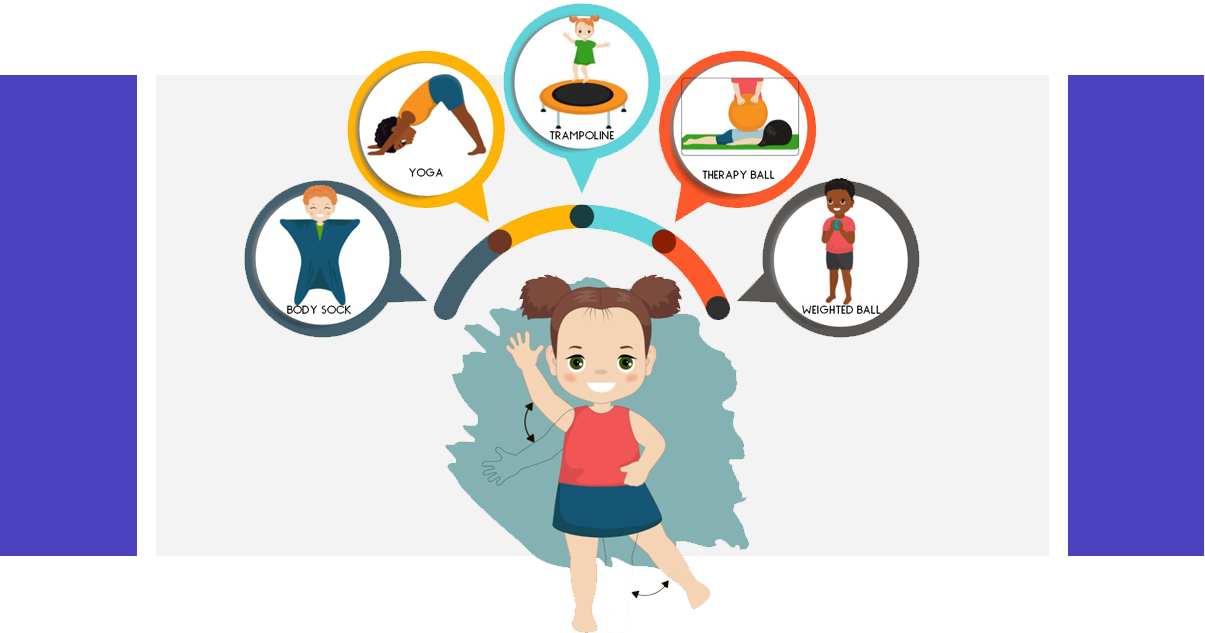A child’s brain develops continually throughout the day according to the surroundings around them, which provide a sensory experience to the young one. For children with sensory processing disorders, the inputs from the environment can either be overwhelming or may not be enough to satisfy the child’s needs. Sensory diets provide activities that enhance the child’s sensory development, which is in the domains of tactile (touch), proprioception (deep pressure, body awareness), vestibular (movement and balance), auditory (hearing), oral and olfactory (smell) and visual. Some examples of activities in a sensory diet include wearing a heavy backpack while going for a walk in the park, using a torch to highlight specific words while reading a book, eating chewy foods or using chewable toys. The time span and amount of each type of input included in the child’s routine are carefully planned by a therapist, which helps to maintain a balance of neurochemicals in their nervous system necessary for maintaining an ideal level of arousal and attention, allowing the child to feel calm and organised while participating in social events and academics.
Your child could benefit from a sensory diet if they tend to avoid some activities, or is unable to settle down in a busy environment or concentrate while performing a task. If you are interested in acquiring a sensory diet, please contact your nearest Sneh centre.
